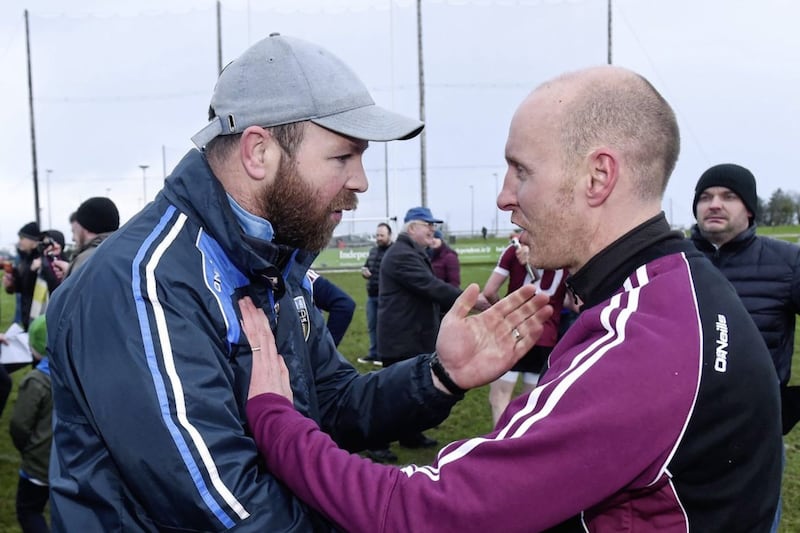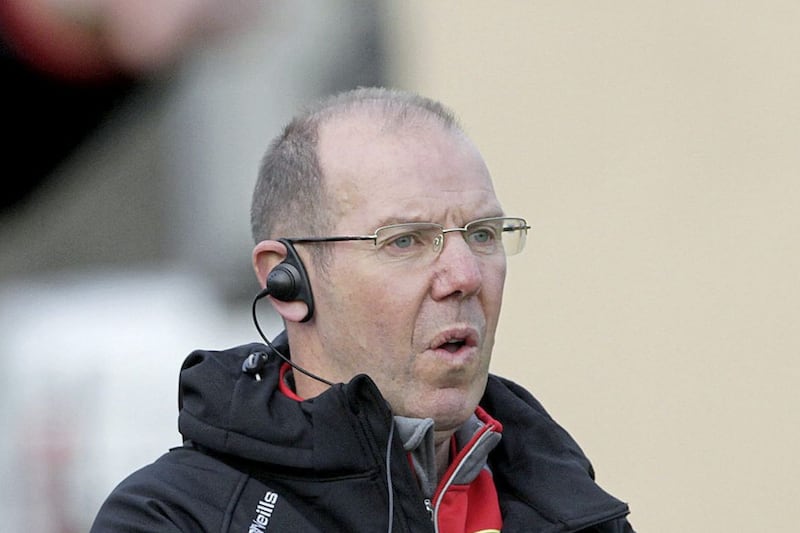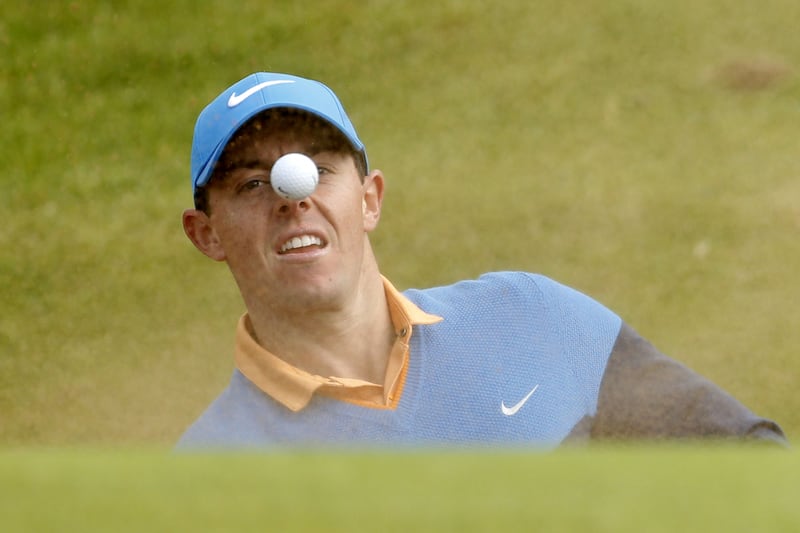WHAT is a tackle? It was interesting to hear Kieran McGeeney ask the very same question.
Ask any referee and I suspect they will give you a different answer. Ask a player or supporter and there is little chance you will get anything close to a definitive answer.
If we accept that Gaelic football and hurling are contact sports, surely we can define what legal and illegal contact is. However, it does seem that, in football, there is much more room for interpretation. The referee makes far more mistakes and, generally, a lot more controversy surrounds the performance of the match official.
Of all the games I watched last weekend, I am none the wiser as to what constitutes a foul nowadays. Sure, you could ring Kevin McStay up and ask him for a quote from the rulebook, but since when was any game played by the rulebook?
In addition, the rulemakers are sometimes not the best judge or interpreter of a sporting law. The cynicism which has always blighted the game continues to rear its head. The dark arts, as they are better known, are alive and well.
The black card has only managed to punish the more obvious tackles. The pulling, dragging and bodychecking still continues. Ask Aidan O’Shea. Ask a couple of the Armagh players when a free was awarded to them and you had perhaps one or two players lying on top of the player delaying the swift return to action. You ask any manager if their player was the guilty party. They may condemn them in public, but in private there is no way they would chastise them. They would tell them just to be careful.
Rugby had the same problem a number of years ago and an element of cynical play is still present. However, the ‘roll-away’ rule largely eradicated a once prevalent problem. Another example perfected many years ago by Armagh when they were performing particularly well was the bodycheck - albeit in a not so obvious manner. I say ‘not so obvious’ with regard to bodychecking in certain positions. A centre half-forward, for example. He collects the ball, turns and delivers a pass goalward. As soon as he kicks the ball and attempts to collect the return, a good defender will ‘hand him off’ – subtly pushing him backward via the chest - stopping his momentum and preventing any such return pass.
Players such as Mark Poland and Kevin McKernan routinely stopped using this tactic. Kerry are all but masters of it currently. These may not be the obvious body-checking tactics employed by certain Armagh players in the noughties - but they are nonetheless a subtle version. Not only are the top five or six teams in the country now honing these skills routinely during the week, but the teams playing
catch-up are simply unable to match such levels of ‘cuteness’.
I always felt that if a defender was winning the race to the ball, getting a hand in and breaking it away, that represented the best qualities of any defender. Kerry, Donegal, Dublin and Monaghan are all masters of basic defending.
No overly-complicated systems, just boys willing to win the ball in front or, at the very least, prevent opponents securing primary possession.
DOWN have found themselves in Division One. In truth, Tyrone, Derry and Galway are all better teams, who are more capable of that level of football.
Galway are the one up and coming team lying below the radar and it would not surprise me to see them in the shake-up come August or September. Roscommon also are seeing resurgence. Anyone who scores and dominates a game against Cork in such a manner needs to be taken seriously.
Sometimes, I find myself day-dreaming and it almost seems like yesterday when we were lining up against Cork in a major decider. Perhaps for both counties and, indeed, players this was as good as it got.
Cork will always be a mystery. If you listened to Graeme Souness talking of Arsenal’s defeat to Manchester United, you would have to agree there has been a serious lack of ‘minerals’, for want of a better word, within recent Arsenal squads. Huge potential, yes, but no leaders. The same could equally be levelled at Cork.
Mayo are just Mayo. In the same way that it rains in Ireland, this Mayo team have a habit of imploding in tight games. They had Donegal for large periods, but they are just unable to kill teams off. Donegal are my favourites for Ulster this year. Everything about their play and experience and, indeed, quality says that another All-Ireland title is not beyond their reach either. I just don’t know how they are managing to take such a genuine crop of young quality players into the squad each year, but I would love to know the secret.
Antrim, meanwhile, continue to benefit from confidence gained playing at a lower level. They need Division Three football or higher as a minimum. The county will only get better, indeed the players also, if they play at a better standard as long as the step up is not too great - which Division Three is not.
I was disappointed Monaghan were narrowly-beaten by Dublin last Saturday night. You could see that the Hollywood shots taken in the first-half, when they should have been perhaps five or six points up at half-time, would eventually come back to haunt them.
Without a shadow of a doubt, Conor McManus gave an exhibition in score-taking, in securing possession and indeed in all-round forward play. He has developed into one of the most consistent and feared forwards in the country.
They talk about Diarmaid Connolly and Bernard Brogan in the capital, but if McManus was wearing a Dublin jersey, they would have given him the freedom of the city long ago. Sometimes you only see what you want to see. Beauty is in the eye of the beholder.
The word ‘great’ is used far too often to describe any sportsperson. But McManus is certainly making a just case for inclusion into the ‘great’ player bracket. In my opinion, he is as good as - if not better - than anything the capital has to offer.









